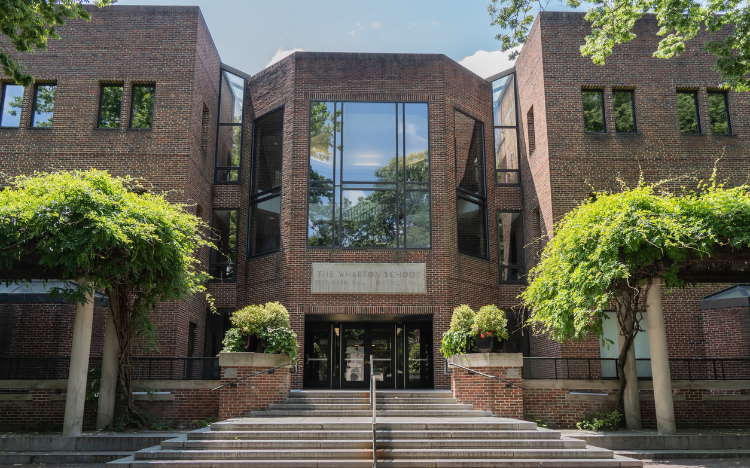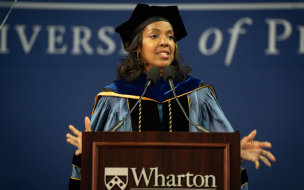Last year, Wharton had to share its first-place ranking with the Stanford Graduate School of Business. But Stanford slipped to second place in a tie with Northwestern University’s Kellogg School of Management for 2025.
The positions of the leading five schools only jostled slightly compared to the 2024 ranking, with the top slots rounded out once again by the University of Chicago Booth School of Business and MIT Sloan School of Management.
Meanwhile, the Tuck School of Business at Dartmouth College, the Stern School of Business at New York University, and Harvard Business School all tied for sixth place—the same position Harvard held by itself last year.
Columbia University and Yale University closed out the top 10—with half those leading spots going to Ivy League schools. The University of Virginia’s Darden School fell out of the top 10, moving to 11th place.
Further down the list, the shifts in the rankings were more pronounced. The University of Washington’s Foster School of Business moved up five spots to rank 22nd this year, and Ohio State University’s Fisher School of Business leapfrogged seven places to rank 24th.
Meanwhile, the University of Southern California’s Marshall School and the University of North Carolina’s Kenan-Flagler Business School both dropped in the rankings to place 24th and 28th, respectively.
Northwestern not only jumped up one spot in the full-time MBA rankings but also tied for first place in the US News rankings for part-time MBAs, alongside the part-time programs at Chicago Booth and Berkeley Haas.
The US News MBA rankings are based on several different factors, including salaries after graduation, employment rates, average GMAT scores, and MBA acceptance rates. A quality assessment also includes an evaluation of each program by corporate recruiters and other business school deans.
The amount of scholarship aid given to MBA students is not factored into the US News rankings, nor is the size of business schools’ endowments.
US News MBA Ranking 2025: Where Wharton, Stanford rank on key metrics
Although Wharton, the US News’ “best” business school for 2025, didn’t take the gold in any particular metric, it placed high on all metrics across the board.
Wharton has a full-time employment rate of 90.4% three months after graduation and boasts “the largest alumni network in the country,” according to US News.
Among the top 10 business schools, only Dartmouth Tuck had a higher employment rate, with 90.7% of its graduates moving into full-time employment within three months (based on a two year average).
Stanford boasts the highest average pay for graduates among the top 10, at $206,955, including salary and bonus. Chicago Booth placed second in terms of average graduate salary and bonus, at $204,099.
Wharton’s admission rate fell in the middle of the pack at 20.5%, according to US News.
Second-ranked Stanford had the lowest admission rate this year, at 6.8%. Meanwhile, Dartmouth Tuck had the highest admission rate among the top ten schools at 31.2%, followed closely by Chicago Booth and Northwestern Kellogg.
Tuition and fees for all the schools in the top five surpassed $80,000 per year for full-time attendance.
However, more affordable options in terms of tuition and fees can be found among the top 25 MBA programs, particularly at state universities. The Scheller College of Business at Georgia Tech, the Kelley School of Business at Indiana University and the Max M. Fisher College of Business at Ohio State University all offer in-state tuition and fees at around $30,000 per year.






